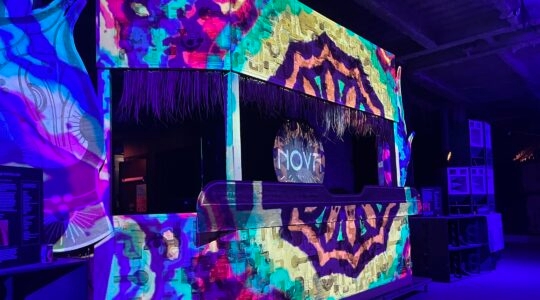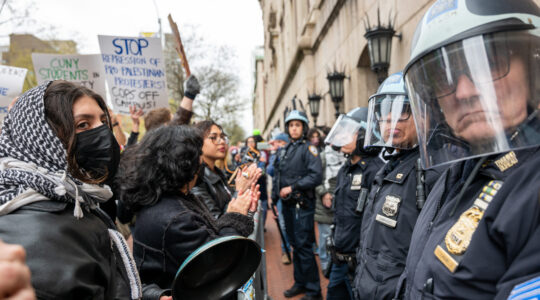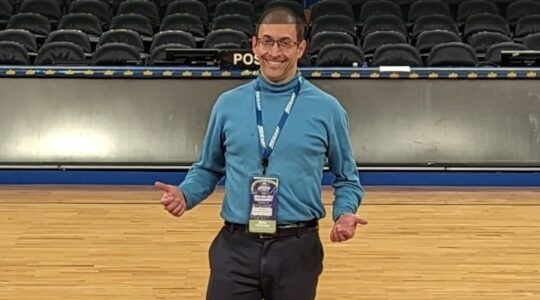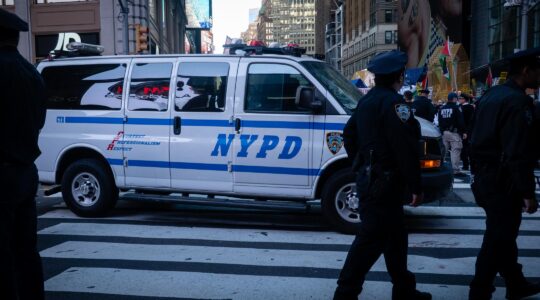‘Two of my cousins were killed last week, and the person who killed them is still free,” Raya Munaa told me on Monday, as several days of angry demonstrations by Arab Israelis subsided.
“Are you really telling me that with all of Mossad’s abilities and technology, law enforcement can’t catch him?” She is convinced that when it comes to Arab Israelis, police don’t try their best.
The killing of her cousins and another man in a brawl in the Galilee town of Majd al-Krum was the final straw for an Israeli-Arab community that is increasingly worried about violence and what it says is neglect by police. Protests were held and roads were blocked, from the north to the south of the country.
In an often-fractured state, crime is a sector where Jewish-Arab cooperation is booming. The prominent coexistence activist Thabet Abu Rass, co-executive director of the coexistence nonprofit The Abraham Initiatives, told me dryly: “Unfortunately, cooperation between Arabs and Jews is strong in the area of crime, including weapons and drugs.”
He is worried by “a real deterioration in safety” in Arab towns and cities. He said: “In [some] places, people are scared to go out of their homes. Gangster families are controlling public spaces in some towns, and the Israeli police can do a better job in combatting crime.”
Arabs account for just 1-in-5 Israeli citizens, yet an estimated one-half of all violent crime incidents involves Arabs, and illegal firearms are rife. There have already been 71 people killed in the Arab sector in the last nine months — meaning that if killings continue at the current rate, the 2019 figure will be up from previous years by about 25 percent.
The question provoking high passions in Israel this week is who should be blamed.
Munaa has no doubts. She says that Arab communities are rife with weapons that the police fail to collect. And rife with drugs, which the police turn a blind eye to. “There are even jokes,” Munaa said, “that if Jews want drugs, they should ask [an Israeli] Palestinian to buy them.”
She is convinced this situation is intentional. “People who are on drugs are not going to worry about rights and politics and protests. It’s the best way to control us as a population.”
Abu Rass, who like Munaa attended demonstrations, disagrees with her analysis. “I don’t believe in conspiracy theories,” he said. “What I know is that my people are stronger today than 10 years ago.”
To him, the notion of youngsters from his community being drugged to a stupor is jarring. “The number of Arab students on campuses is growing — it’s unprecedented,” he noted. “I look at Israeli hospitals and see we are 21 percent of the doctors, and we are also 41 percent of the pharmacists.”
Abu Rass thinks that high levels of violent crime reflects a general lack of attention by government to the needs of Arab communities over the years. He cited under-policing and tense relations with the Israeli police. He argued that poorly developed towns and cities become havens for crime.
Support the New York Jewish Week
Our nonprofit newsroom depends on readers like you. Make a donation now to support independent Jewish journalism in New York.
“When you have a town where there’s no bank, people go to others to borrow money at a high interest rate that they cannot pay back,” he said. In such a place, crime families become powerful money lenders. Abu Rass credits police with improvements in policing Arab areas over the last two years, but says that much more needs to be done.
Prime Minister Benjamin Netanyahu’s relationship with the Arab community is strained, after an election campaign during which he was accused of capitalizing on anti-Arab sentiments. He spoke briefly this week, saying: “All of us must act responsibly and cooperate in order to fight violence.” The prime minister’s office released a statement saying that he decided to “allocate additional forces and to increase enforcement in order to continue the struggle against violence.”
Netanyahu side-stepped the question of who is to blame for the violence, but the Likud minister Gilad Erdan, who participated in Netanyahu’s decision making on the subject, took a position.
Some right-wing politicians in Israel feel that Arab leaders are venting at the national leadership for their community’s own failures. Erdan, who oversees the police, said of the Arab community on Monday: “It’s a very, very — and another thousand times — very violent society. It’s connected to the culture there. A lot of disputes that end here with a lawsuit, there they pull out a knife and gun.”
Ayman Odeh, leader of the Joint List, the Arab political faction, accused Erdan of blaming victims and making “racist claims.”
The suggestion that the problem arises, at least in part, from culture in Arab Israel, is strong among police. Micky Rosenfeld, spokesman for Israel Police, said: “The use of weapons is more widespread [than among Jewish Israelis] and community leaders are not taking enough responsibility.” He denied claims of neglect by police, and said that major efforts are underway in the Arab sector.
Rosenfeld said that the prevalence of illegal firearms means that incidents quickly spiral. “A stabbing can turn into a large-scale incident with weapons in a way that wouldn’t happen in Tel Aviv.”
He insisted: “The fundamental problem has to be dealt with by the leaders of the Arab community.” The disagreement between police and some Arab activists runs deep.
Asked whether Arabs should be looking inwards, Munaa hit back: “It’s not my job as a citizen to fight the mafia and people who hold guns.”
Nathan Jeffay’s column appears twice a month.




